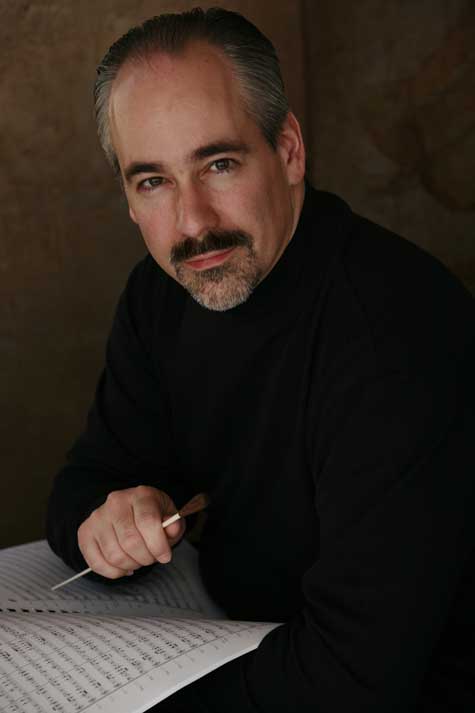
INVESTIGATIVE COMPOSING Peter Boyer searches history. |
A teacher told me years ago that someday "you young people will inherit classical music. Then you can do with it what you want." And so I've been waiting, somewhat impatiently, for that day to arrive. If this year's opening season is any indication, my wait may be over.
The Portland Symphony Orchestra's new music director, Robert Moody, is both young and exuberant. He wants us to clap between movements if we want to (despite glares from our elders), he wants to bring "new" music to our city, and he wants to reinvent the way the younger generation responds to classical music.
In keeping with those goals, Moody will open the PSO's season on October 6 with Peter Boyer's Ellis Island: The Dream of America. Admittedly, Moody has placed Beethoven's Eroica before Ellis Island, but I'll chalk that up to the fact that Boyer's work will require dramatic stage adjustments, so the choice to play one of the world's most famous, and I would even say over-performed, symphonies as the orchestra's season opener was merely a logistical one.
Regardless, the Boyer is the exciting work for the evening. Ellis Island calls for seven actors and a large projection screen, in addition to a full orchestra.
"I always had a fascination with the Titanic," says the composer. "I was thinking about the third-class immigrants, and that got me thinking more generally about immigration."
Boyer decided to do some research and discovered the Ellis Island Oral History Project.
"That was when the whole idea came together," Boyer says.
Begun in the mid-1980s, the Ellis Island Oral History Project asked immigrants to recount their experiences coming to America through the Ellis Island immigration station. Boyer went through the more than 2000 interviews, and chose the seven stories that spoke to him.
"I was determined to use only the words of actual immigrants," he says.
The work opens with a prologue introducing all the musical scenes. During the prologue, images of Ellis Island and the immigrants will be projected onto a large screen. Then actors from Portland Stage Company will take the stage to tell the stories of seven European immigrants who came to America between 1910 and 1940.
"I tried to create a seamless underscore with an emotional thread," says Boyer. "I added what only music can add -- an emotional connection with a historic connection."
The Portland Symphony is not alone in its pushing of the classical envelope. In its 41st year, the Portland String Quartet is doing some reinventing of its own. Young Matthew Szemela, a former student of PSQ violinist Ronald Lantz, will join the quartet for its season opener on Oct. 4 performing Vivaldi's Autumn from the ubiquitous The Four Seasons. While a performance of a piece most of us could hum in our sleep hardly seems earth-shattering, the instrumentation and interpretation by this group takes what would otherwise be cliché to an exciting new level.
Szemela will play the violin solos on a six-string electric amplified violin with effects pedal and improvise his own interpretations of the work during interludes and introductions.
"Improvisation is just a conversation you haven't written out," says Szemela. "It's my response to what Vivaldi wrote, what the music inspires in me."